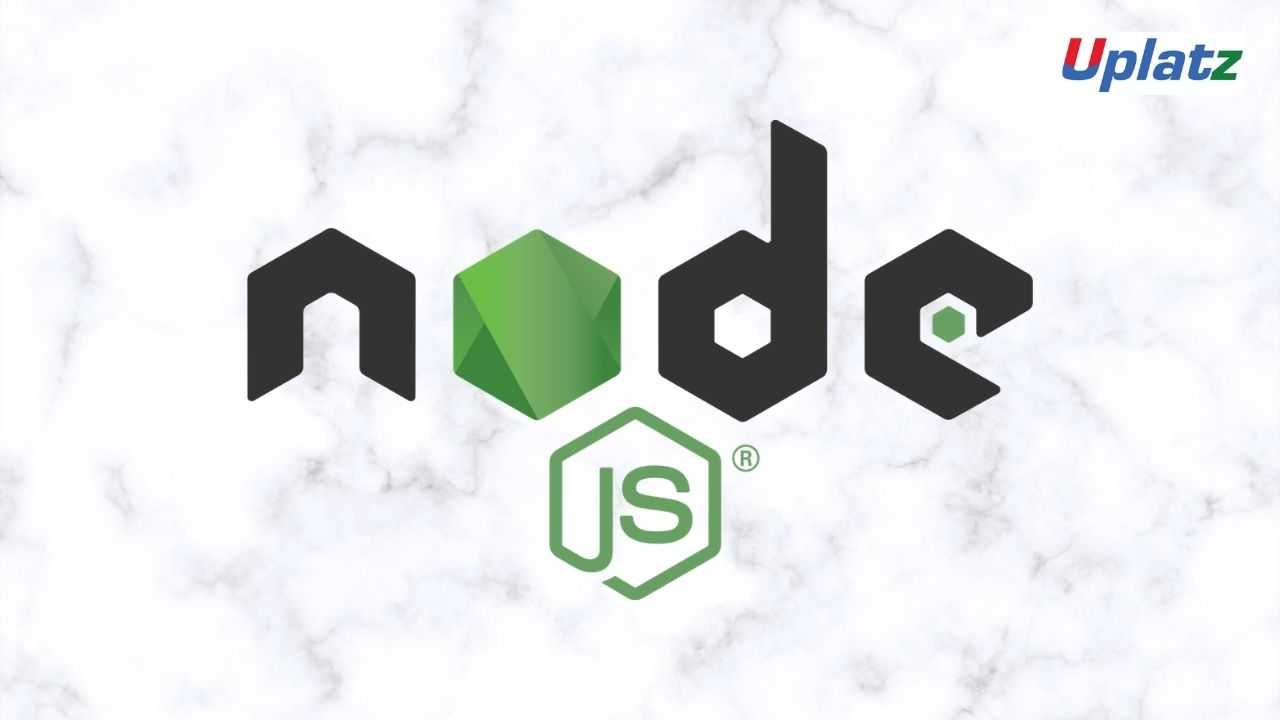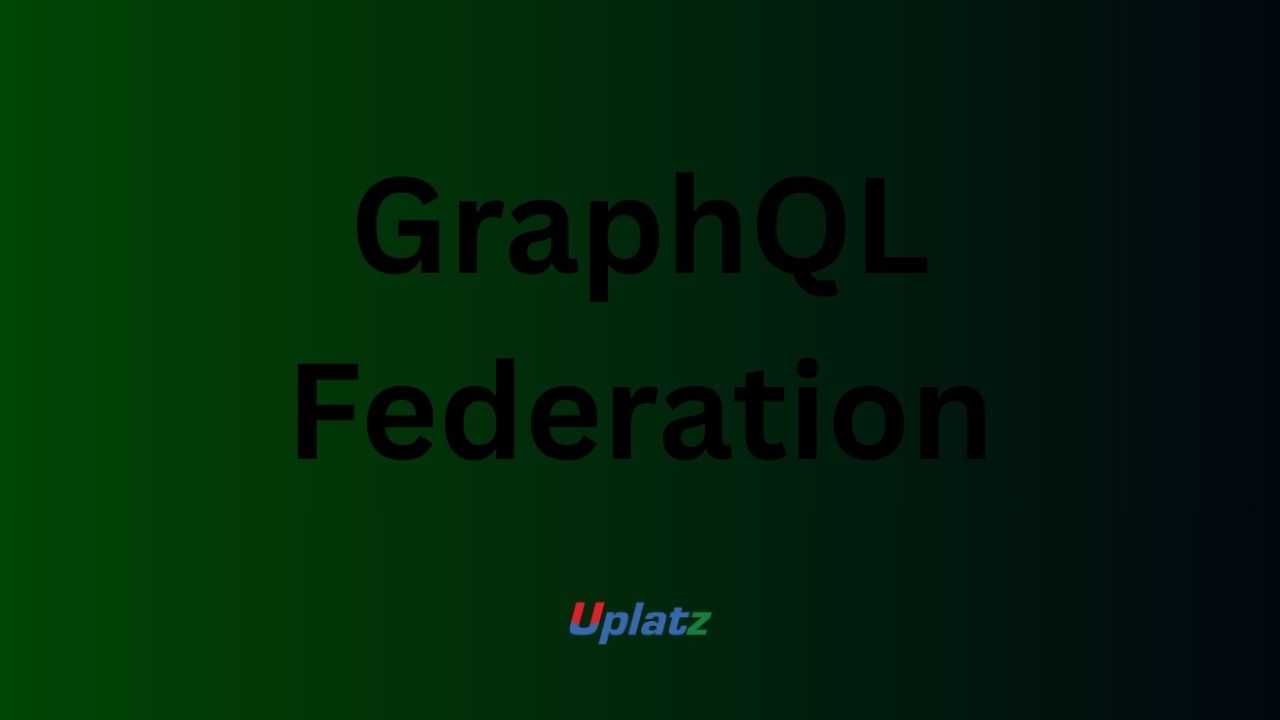Prisma ORM
Master Prisma ORM to simplify database access with type-safe queries and modern data modeling for full-stack applications. Price Match Guarantee
Full Lifetime Access
Access on any Device
Technical Support
Secure Checkout
Course Completion Certificate
Price Match Guarantee
Full Lifetime Access
Access on any Device
Technical Support
Secure Checkout
Course Completion Certificate
 97% Started a new career
BUY THIS COURSE (
97% Started a new career
BUY THIS COURSE (GBP 12 GBP 29 )-
 85% Got a pay increase and promotion
85% Got a pay increase and promotion
Students also bought -
-

- Node.js
- 21 Hours
- GBP 12
- 1896 Learners
-

- Next.js
- 6 Hours
- GBP 12
- 876 Learners
-

- GraphQL Federation
- 10 Hours
- GBP 12
- 10 Learners

Prisma is a next-generation Object-Relational Mapper (ORM) that revolutionizes how developers interact with databases in Node.js and TypeScript applications. By combining type safety, schema modeling, and intuitive migrations, Prisma enables teams to build robust, scalable, and maintainable full-stack applications without the complexity of raw SQL or traditional ORMs.
This Mastering Prisma – Self-Paced Course by Uplatz provides a complete, hands-on introduction to Prisma ORM, from setup and schema design to advanced querying, relations, and production deployment. You’ll learn how to model relational data, manage migrations, integrate Prisma with popular frameworks, and build type-safe APIs — all while maintaining exceptional developer productivity.
Whether you’re a backend developer, a full-stack engineer, or a frontend developer working with modern frameworks like Next.js, NestJS, or Express, this course will equip you with the skills to handle databases elegantly and efficiently using Prisma.
🔍 What is Prisma ORM?
Prisma is a modern ORM that simplifies database management and data access in JavaScript and TypeScript projects. It provides a declarative way to model your database schema and generates a type-safe Prisma Client that you can use to query and manipulate data with full IntelliSense support and compile-time validation.
Instead of manually writing SQL queries or dealing with complex ORM abstractions, Prisma allows you to:
-
Define data models using a clean schema.prisma file.
-
Automatically generate migrations and query clients.
-
Interact with the database using auto-completion and type checking.
-
Integrate seamlessly with tools like PostgreSQL, MySQL, SQLite, MongoDB, and PlanetScale.
Prisma is not just an ORM — it’s a developer productivity toolkit for data-intensive applications that reduces bugs, speeds up development, and ensures reliability through strong typing and predictable behavior.
⚙️ How Prisma Works
Prisma operates as a three-part toolkit that bridges the gap between your code and the database:
-
Prisma Schema:
-
Defines your database models and relationships in a single source of truth.
-
Automatically maps your schema to the underlying database structure.
-
-
Prisma Migrate:
-
Handles versioned migrations for database schema changes.
-
Allows you to safely evolve your database in development and production.
-
-
Prisma Client:
-
A type-safe, auto-generated query builder that gives you full control over data access.
-
Eliminates runtime errors by enforcing schema correctness at compile time.
-
Together, these components allow you to model, migrate, and query your database in a way that is both powerful and easy to maintain — all within a TypeScript-first ecosystem.
🏭 How Prisma is Used in the Industry
Prisma has quickly become one of the most popular ORMs among modern web developers and startups building scalable, data-driven applications. Its compatibility with the Node.js ecosystem and strong TypeScript integration make it a natural fit for teams using frameworks like Next.js, NestJS, and Remix.
Common use cases include:
-
Full-Stack Applications: Managing database access in Next.js or Remix projects.
-
Backend APIs: Building GraphQL or REST APIs with type-safe data layers.
-
Microservices: Ensuring consistent database interactions across distributed systems.
-
SaaS Platforms: Managing multi-tenant databases and schema migrations.
-
Data Analytics Dashboards: Querying relational data safely and efficiently.
Companies and open-source projects around the world — including Vercel, Hasura, and T3 Stack — rely on Prisma for its developer experience, performance, and reliability.
🌟 Benefits of Learning Prisma ORM
Learning Prisma helps developers simplify their data workflows while embracing modern best practices in database development.
Key benefits include:
-
Type Safety: Catch database errors during compilation instead of runtime.
-
Productivity: Auto-complete queries and relationships using Prisma Client.
-
Clean Schema Management: Define and evolve data models effortlessly.
-
Cross-Framework Integration: Works seamlessly with Express, NestJS, Next.js, and GraphQL.
-
Multi-Database Support: Compatible with PostgreSQL, MySQL, SQLite, SQL Server, and MongoDB.
-
Migration Control: Easily manage schema versioning across environments.
-
Team Collaboration: Maintain consistency in data access logic across developers.
-
Performance Optimization: Reduce query complexity and improve efficiency.
By mastering Prisma, you gain a critical skill that bridges database management and application development, empowering you to build scalable, maintainable systems confidently.
📘 What You’ll Learn in This Course
This course provides a complete, hands-on journey through Prisma — from fundamentals to advanced workflows:
-
Understand the core concepts of Prisma ORM.
-
Learn schema modeling, relations, and data types.
-
Manage migrations and version control with Prisma Migrate.
-
Perform CRUD operations with Prisma Client.
-
Handle relations (1:1, 1:n, m:n) and nested queries.
-
Integrate Prisma with Next.js, NestJS, and Express backends.
-
Implement transactions, middleware, and error handling.
-
Work with cloud databases (PlanetScale, Supabase, Neon).
-
Apply best practices for performance, testing, and security.
-
Deploy Prisma-powered apps to platforms like Vercel, Render, or AWS.
By the end of this course, you’ll be able to design, query, and manage relational databases with confidence, all while using modern, maintainable TypeScript code.
🧠 How to Use This Course Effectively
-
Start with the Basics: Understand Prisma’s schema and migration workflows.
-
Practice with Local Databases: Experiment using SQLite or PostgreSQL.
-
Build Mini Projects: Create small APIs or dashboards to apply concepts.
-
Integrate Frameworks: Add Prisma to a Next.js or NestJS project.
-
Explore Advanced Features: Learn about middleware, transactions, and query optimization.
-
Review and Deploy: Push your projects to the cloud for real-world testing.
👩💻 Who Should Take This Course
This course is designed for:
-
Backend Developers who want to simplify database access.
-
Full-Stack Engineers working with frameworks like Next.js or NestJS.
-
Frontend Developers expanding into API and database integration.
-
Data Engineers looking for type-safe data modeling tools.
-
Startups & Teams seeking scalable database management.
-
Students & Professionals learning modern application architecture.
Basic knowledge of JavaScript or TypeScript is helpful, but no prior experience with Prisma or databases is required.
🧩 Course Format and Certification
This self-paced course includes:
-
HD video tutorials and live coding demonstrations.
-
Downloadable schema files and project templates.
-
Step-by-step assignments and hands-on mini-projects.
-
Quizzes and checkpoints for self-assessment.
-
Lifetime access with free updates for future Prisma versions.
Upon completion, you’ll receive a Course Completion Certificate from Uplatz, validating your expertise in Prisma ORM and database management using modern JavaScript and TypeScript.
🚀 Why This Course Stands Out
-
Comprehensive Coverage: From schema modeling to cloud deployment.
-
Hands-On Projects: Real-world data workflows and app integration.
-
Type-Safe and Future-Ready: Leverages modern TypeScript standards.
-
Framework Compatibility: Works across popular Node.js ecosystems.
-
Career Impact: Boost your full-stack development and database skills.
By the end of this course, you’ll not only master Prisma ORM but also understand how to build clean, reliable, and scalable data layers for any modern application.
🌐 Final Takeaway
As web applications become more data-driven and full-stack frameworks evolve, developers need database tools that combine speed, safety, and simplicity. Prisma ORM delivers all three — enabling you to manage data models, migrations, and queries with unparalleled ease and confidence.
The Mastering Prisma – Self-Paced Online Course by Uplatz provides the essential skills to harness Prisma’s power for your professional or enterprise projects. You’ll learn how to connect, query, and optimize databases effortlessly while maintaining clean, type-safe, and maintainable code.
Start today and become a Prisma expert capable of building production-grade data backends for the next generation of web applications.
By completing this course, learners will:
-
Model and migrate databases using Prisma schema.
-
Perform type-safe queries with Prisma Client.
-
Manage relations and nested queries easily.
-
Integrate Prisma with modern frameworks (Next.js, NestJS, Express).
-
Optimize database workflows for scalability and performance.
-
Deploy Prisma-powered apps in production environments.
Course Syllabus
Module 1: Introduction to Prisma
-
What is Prisma?
-
ORM vs raw SQL
-
Installing Prisma and setup
Module 2: Prisma Schema & Modeling
-
Defining models and fields
-
Data types and constraints
-
Relations (1:1, 1:n, n:m)
-
Working with enums and default values
Module 3: Migrations & Database Management
-
Prisma Migrate basics
-
Applying schema changes
-
Versioning database schema
-
Resetting and seeding databases
Module 4: Prisma Client
-
Generating Prisma Client
-
Running queries (CRUD operations)
-
Filtering, sorting, and pagination
-
Nested queries and aggregations
Module 5: Advanced Queries & Features
-
Transactions with Prisma
-
Middleware for queries
-
Raw SQL with Prisma
-
Performance optimization
Module 6: Framework Integrations
-
Prisma with Next.js and React apps
-
Prisma with NestJS and Express APIs
-
GraphQL integration with Prisma
-
REST API setup with Prisma
Module 7: Deployment & Scaling
-
Deploying Prisma apps to Vercel, Heroku, AWS
-
Database connection pooling
-
Monitoring and logging queries
-
Scaling strategies for production
Module 8: Real-World Projects
-
Blog application with Next.js and Prisma
-
E-commerce backend with Prisma and PostgreSQL
-
Task management app with NestJS + Prisma
-
Analytics dashboard with Prisma aggregations
Module 9: Best Practices & Future Trends
-
Structuring Prisma projects
-
Error handling and debugging
-
Security considerations
-
The future of Prisma ORM and database tooling
Learners will receive a Certificate of Completion from Uplatz, validating their expertise in Prisma ORM and modern database management. This certification demonstrates readiness for roles in backend engineering, full-stack development, and database-driven application design.
Prisma ORM skills prepare learners for roles such as:
-
Backend Developer (Node.js / TypeScript)
-
Full-Stack Engineer (Next.js, NestJS, React)
-
Database Developer (modern apps)
-
API Developer (REST & GraphQL)
-
Software Engineer (scalable apps)
Prisma is increasingly adopted by startups and enterprises alike as a modern, type-safe alternative to traditional ORMs, making it a valuable skill in the job market.
1. What is Prisma ORM?
A next-generation ORM for Node.js and TypeScript that provides type-safe queries and schema-driven database modeling.
2. How does Prisma differ from traditional ORMs?
It uses a schema-first approach, generates a type-safe client, and integrates deeply with TypeScript for compile-time safety.
3. What is the Prisma Client?
An auto-generated, type-safe query builder used to interact with the database.
4. How does Prisma handle migrations?
Through Prisma Migrate, which applies schema changes, generates SQL migration files, and keeps track of versioned updates.
5. Can Prisma work with multiple databases?
Yes, it supports PostgreSQL, MySQL, SQLite, SQL Server, CockroachDB, and MongoDB.
6. What are the advantages of Prisma over raw SQL?
Type safety, auto-completion, schema consistency, and reduced boilerplate queries.
7. How does Prisma handle relations?
It supports 1:1, 1:n, and n:m relations with simple schema definitions and generates query helpers for nested queries.
8. How can Prisma be integrated into a Next.js app?
By using Prisma Client in API routes or server components to handle database operations.
9. What are challenges when using Prisma?
-
Learning curve with Prisma schema
-
Limited advanced database features compared to raw SQL
-
Potential performance overhead in very large queries
10. Where is Prisma being adopted?
In startups, SaaS platforms, and modern full-stack teams using Next.js, NestJS, and GraphQL-based applications.









